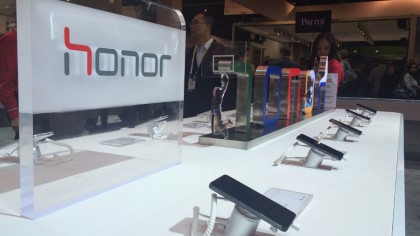Imitation or innovation: can China be a real force in tech?
Is China about to flourish as an innovation superpower?
Innovation or imitation?
Chinese-made electronics remain cheap. Despite the new focus on innovative marketing, undercutting incumbent brands in foreign markets is the easiest 'in' route. That keeps the stereotype – that Chinese brands don't innovate, they imitate – going strong, but it's just not true.
"You only need to look at the number of patent applications – which has now exceeded the US – to see how fast China is moving, and with a vast home market to exploit they are able to gain huge experience and drive down costs," says Dr Peter Chadha, CEO of DrPete Technology Experts. "I'm in no doubt that over the next 24 months Xiaomi's innovation and a host of others will overtake Samsung and the other Android proponents."
The only barrier to that happening overnight is a lack of an established value chain in place in Europe and the US when it comes to service and support. That's not the case in emerging markets like Brazil, Turkey, Russia and Mexico, which is why Chinese brands are focused on them. "It started as an imitation but it is more and more innovation," says Corsi.

Why do Chinese brands struggle to match Korean and Japanese brands?
It's simply a matter of time. "When Japan began its economic development and Japanese firms started internationalising, they were the ones looked at as the imitators with their 'reverse engineering' process," says Corsi.
"The same applied for Korean companies … getting the recognition of global high-tech brands for Chinese companies is harder because of the wrong idea that has been diffused about China in the world by the media – low-cost labour, no IP protection, no creativity," says Corsi. "While this was true in the past, it is now more and more clear that China is shifting from the role of manufacturing superpower to the one of innovation superpower."
However, until the stereotype of Chinese companies changes in the minds of Westerners, the country won't produce many global brands. Do people know that Lenovo is a Chinese brand? Probably not, because the name doesn't give it away. On that logic, Huawei will struggle, hence why its branding of the Honor phones rarely mentions the manufacturer's name.

The rise of China: the losers
Chinese brands are on the rise, but at whose expense? "Samsung, the market leader in the Android space, is the big brand under greatest threat as its leadership is largely due to hardware – and maybe brand loyalty and distribution – but there is no software differentiation of any note," says Chadha. "As the Chinese brands improve, the Samsung business will get riskier and riskier because they will be unable to compete on volume and cheaper prices."
Are you a pro? Subscribe to our newsletter
Sign up to the TechRadar Pro newsletter to get all the top news, opinion, features and guidance your business needs to succeed!
Apple is rather more protected, since it owns the software ecosystem that people are tied into. "It's essentially like buying a BMW Mercedes or even a Ferrari, but even the fuel that goes in the car is Apple's own fuel – i.e. apps – and so they make money throughout the ownership of the device." Samsung, nor any other maker of smartphones, has anything like as secure a business model to protect them from aggressive Chinese brands.
Dominating the conversation?
It may innovate more than any other country, but if Chinese electronics brands are to dominate globally, things need to change. Xiaomi doesn't even have an English language OS yet, and besides, there's little awareness or discussion of Chinese brands globally.
Social media mentions during January's Consumer Electronics Show provide a good barometer of a brand's success, especially since all the big Chinese brands had big exhibition stands in Las Vegas, many for the first time.
"We analysed the mentions of Chinese brands including Lenovo, ZTE, Xiaomi and Huawei during the CES and saw minimal mentions and visibility of them compared to others," says Dinah Alobeid, a spokesperson for analyst company Brandwatch. "The only brand out of the four that had a large volume of mentions was Lenovo."
Lenovo had over 13,000 mentions on social media during CES, which dwarfed figures for ZTE (1,300), Xiaomi (1,200) and Huawei (800+). To put it in perspective, Samsung received over 35,000 mentions and even Apple – which had no presence during CES and no product launches during that time – managed more than 19,000 mentions. However, LG got just 2,000 mentions, suggesting that Chinese companies could quite easily eclipse the Korean smartphone maker.
They may have a domestic market that dwarfs all others, but Chinese tech brands are going to have to work hard – and gradually – if any of them are to convince the world's media (and people in general) that they are innovators, and so join Lenovo in becoming respected global brands.
Jamie is a freelance tech, travel and space journalist based in the UK. He’s been writing regularly for Techradar since it was launched in 2008 and also writes regularly for Forbes, The Telegraph, the South China Morning Post, Sky & Telescope and the Sky At Night magazine as well as other Future titles T3, Digital Camera World, All About Space and Space.com. He also edits two of his own websites, TravGear.com and WhenIsTheNextEclipse.com that reflect his obsession with travel gear and solar eclipse travel. He is the author of A Stargazing Program For Beginners (Springer, 2015),
